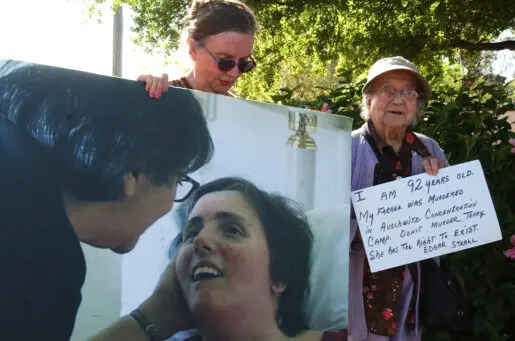Bioethics Forum Essay
Bioethics: Back to the USSR?
The Beatles song Back in the USSR, a parody of Chuck Berry’s Back in the USA, evoked immediate responses from people on the left and the right when it was released in 1968. That was a crucial year. The Soviet Union invaded Czechoslovakia, overturning efforts to introduce democratic reforms and reestablishing an authoritarian regime. Martin Luther King and Robert Kennedy were assassinated, and the Tet Offensive and the My Lai massacre intensified concerns about the Vietnam War.
Also in 1968, Daniel Callahan and Willard Gaylin got the idea to start a research institute on ethics which materialized in the founding of the Institute of Society, Ethics, and the Life Sciences in 1969. In 1968, an ad hoc committee of the Harvard Medical School examined the definition of brain death established criteria for brain death. Two years earlier Henry Beecher published his influential study on ethics and clinical research. This period was the time that the new discipline of bioethics was beginning to emerge.
Now, almost 60 years later, the question is whether bioethics will continue to exist and in what form. In the United States, where the discipline is most developed and institutionalized, it is under pressure. Bioethical discourse will be seriously impeded, distorted, and skewed by at least three U.S. government actions.
First is the list of prohibited terms issued by federal agencies. Many of the terms are frequently used in bioethics research, and it will be impoverished if the issues that these terms refer to can no longer be studied. Several of the most concerning moral problems today such as climate change, racism and discrimination, health disparities, injustice, and inequality have become taboo topics. The list is not only affecting federal funding decisions, and thus redirecting critical research, but is also reshaping public debate, and rewriting the past and the collective historical memory. Many federal websites have already been changed, and content has been deleted. Many bioethics publications and related data are at risk of being expurgated, including my own work on injustice, inequality, diversity, inclusion, and vulnerable populations.
The U.S. government’s list of prohibited terms is a stark reminder of the List of Data Banned in Publications, Radio and Television Programmes used for Soviet censorship until the late 1980s. Any criticism of government policy was of course prohibited, but so was information about natural disasters, major accidents, price increases, food shortages, as well as references to churches, religion, and human rights. Deletion of files and other sources of information is also common in repressive censorship. It is estimated that 10 to 20 million books and documents were destroyed in Estonia during Soviet rule.
Autocratic regimes also have a special interest in archives and libraries. In 1989, the organization Memorial was established in Moscow to document human rights violations and crimes during the Soviet period, but its offices were closed in 2021. The Putin regime not only disliked criticism of the past but also wanted to prevent access to historical sources so that factual examination would be impossible and truth claims undermined. Efforts to rewrite history and create alternative realities are clearly visible in the U.S. today. References to historic Black or transgender leaders have been removed from removed from government websites, and efforts are under way to cleanse history institutions and museums of “inappropriate ideology.”
The second U.S. government action with harmful implications for bioethics is aimed at science, especially research at universities. Important research areas will no longer be funded and published, including research on the social determinants of health, emerging infectious diseases, and access to health care. The consequence will be a lack of new knowledge and expertise on health issues. Policies and practices will no longer be evidence-based (a term that is banned). Biomedical databases such as PubMed (managed by the National Institutes of Health) could become unreliable. Already, there are signs of a brain drain as U.S. scientists migrate to Canada and Europe where safe haven programs have been created for them. Political intimidation of science is now also directed at medical journals–journal editors have received a letter from a federal prosecutor alleging bias. A major publisher in the field of ethics told me that it has received requests to retract publications because they focus on prohibited terms.
That ideological restriction does not promote scientific development is one of the lessons learned from the Soviet Union, where disciplines such as genetics and cell biology were banned, Lysenkoism was the official biological doctrine until the 1960s, and humanities and social sciences were only allowed within the framework of dialectical materialism.
The third action is broader and will affect the core of bioethics. This action prioritizes executive power and undermines democratic checks and balances. Legal and financial threats to universities, the news media, law firms, and businesses risk stifling the free exchange of ideas. Bioethics thrives on open public debate. That is why bioethics flourishes most in democratic societies and suffers or is absent in autocratic regimes.
Consider Hungary, the most corrupt country in the European Union and admired by some U.S. conservatives. Civil servants have been replaced by loyalists, the press is no longer free, universities are no longer independent, and the legal system has become politicized. Human dignity and human rights have been breached. Reports on how these conditions have impacted bioethics are scarce, although the Central European university, with active programs in human rights law and ethics, was forced to relocate from Budapest to Vienna in 2019.
What will be the fate of bioethics in these circumstances? Although last year in Hastings Bioethics Forum Jennings and Brown warned bioethicists about the recommendations of Project 2025, the response of bioethics to their implementation so far has been rather wanting. Of course, one cannot expect everybody to show the same bravery as bishop Mariann Budde, but it is also unlikely that bioethicists will retreat to the safety of traditional issues such as clinical and research ethics. The reason is that the political situation in the U.S. will encourage cooperation among other countries, which is manifested by the adoption of the global pandemic treaty by 191 nations, excluding the U.S. With the U.S. disengaging from multilateralism, the rest of the world will feel incentivized to unite and demonstrate global solidarity.
But there are also signs of change in the field of bioethics in the U.S. to broaden its focus to include justice, equity, access to health care, climate change, migration, racism, and pandemics. Now that the transatlantic alliance is broken and the West fragmentized, there is a real chance of a more inclusive worldview. I hope that bioethics, born with American views and approaches, will morph into a truly global field with global perspectives that recognizes diversity and solidarity and transcends current divisions between North and South, Western and non-Western thinking.
Henk ten Have, PhD, is a Hastings Center Fellow, research professor of bioethics at Anahuac University, Mexico, and Professor Emeritus of Duquesne University’s Center for Global Health Ethics.













